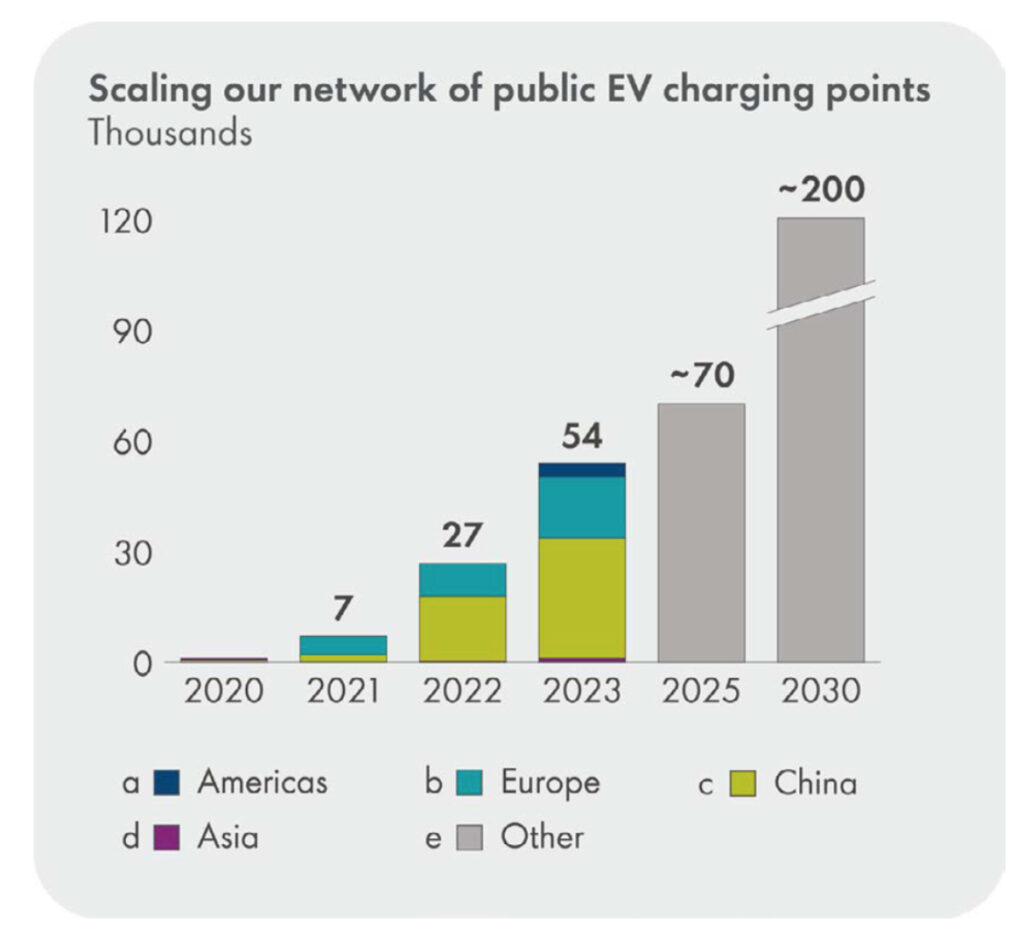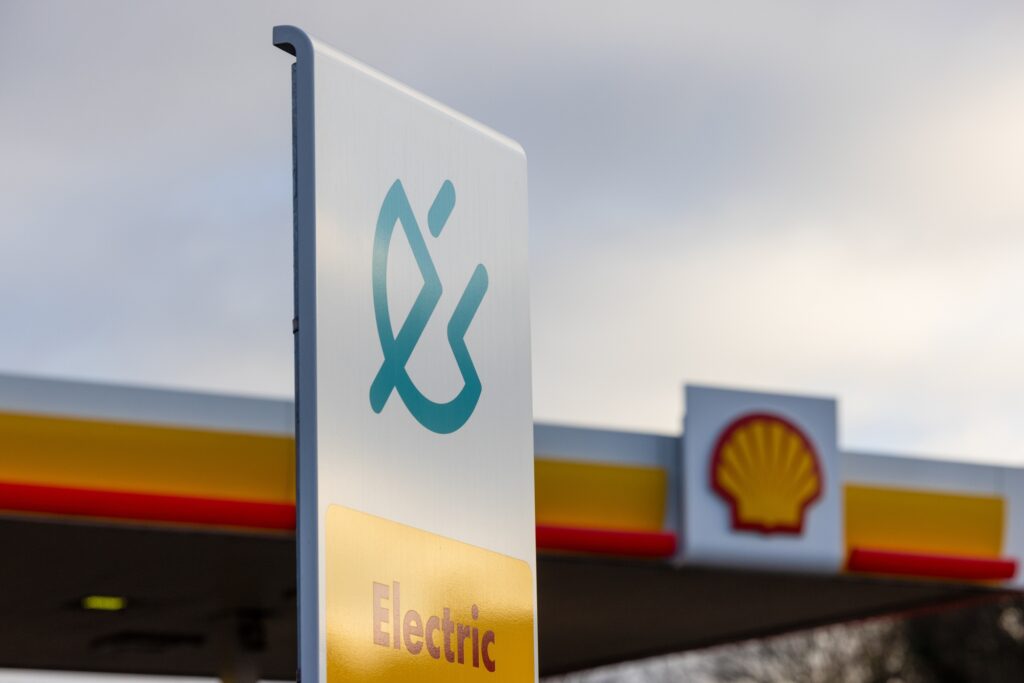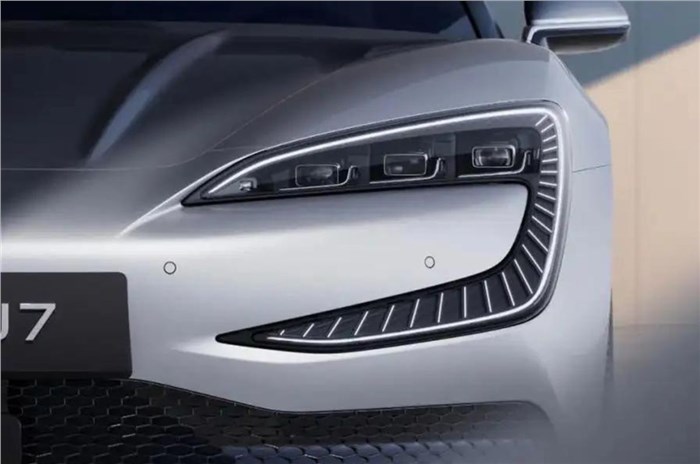As it shifts its focus to the development of charging stations for electric vehicles (EVs), gas and oil giant Shell plans to shutter up to 1,000 retail gas stations in the next few years.
Shell, headquartered in England, announced in its most recent Energy Transition Strategy report that between 2024 and 2025, the company intends to shutter 500 retail locations annually. Rather than that, the business will be concentrating on expanding its public EV charging network; it aims to increase the number of charging spots from 54,000 currently to 200,000 by 2030.


Page 28 of the document, as first noticed by Bloomberg, states that the corporation intends to sell approximately 500 properties controlled by Shell each year in 2024 and 2025.
Because of its competitive advantages, the company has also stated its intention to concentrate on public charging stations instead of home charging.

Credit: Shell
Zack ViscontiPublished: March 19, 2024
As it shifts its focus to the development of charging stations for electric vehicles (EVs), gas and oil giant Shell plans to shutter up to 1,000 retail gas stations in the next few years.
Shell, headquartered in England, announced in its most recent Energy Transition Strategy report that between 2024 and 2025, the company intends to shutter 500 retail locations annually. Rather than that, the business will be concentrating on expanding its public EV charging network; it aims to increase the number of charging spots from 54,000 currently to 200,000 by 2030.
Read More: Kayne West Tops the Hot 100 Again!
Page 28 of the document, as first noticed by Bloomberg, states that the corporation intends to sell approximately 500 properties controlled by Shell each year in 2024 and 2025.
Because of its competitive advantages, the company has also stated its intention to concentrate on public charging stations instead of home charging.
Shell states, “We believe public charging will be needed most by our customers,” which is why the company is concentrating on that rather than home charging. Our worldwide network of service stations is among the biggest in the world, giving us a significant geographical edge over our competitors.
Along with our convenient retail offering, which lets consumers charge their automobiles while enjoying coffee, food, and other convenience goods, we also have other competitive advantages. We anticipate an internal rate of return of 12% or above as we expand our company that provides charging for electric automobiles.
Though it remains committed to its initial goal of reaching net-zero carbon by 2050, the company’s carbon emissions targets for the next decade have been softened by the current energy transition strategy. Additionally, from 2023 to the end of 2025, the business intends to invest $10–$15 billion in energy solutions with minimal carbon emissions.
Additionally, the paper highlights the company’s intentions to back essential oils utilized in offshore wind power and advance electric vehicle battery technology.
“Our premium lubricants portfolio is expanding to meet the needs of important energy transition sectors. For example, we provide cooling fluids to assist in the development of electric vehicle car batteries and transformer oils for offshore wind parks.”
Additionally, Shell has produced a film that explains their transition strategy for 2024. You can view the video below.
Over the past few years, Shell has signed dozens of partnerships to promote the rollout of electric vehicle chargers, including the acquisition of Volta Charge, a U.S.-based network, last year. A recent research from the National Renewable Energy Laboratory (NREL) states that as of Q3 last year, the public DC fast-charging network in the US comprised approximately 1.7% of the network operated by the business, Shell Recharge.
In the United States, 61.7% of all Superchargers are owned by Tesla, keeping the company at the top of its game. Superchargers were formerly reserved for Tesla EV owners, but the carmaker has begun to extend their availability to other manufacturers, starting with Rivian and Ford.




